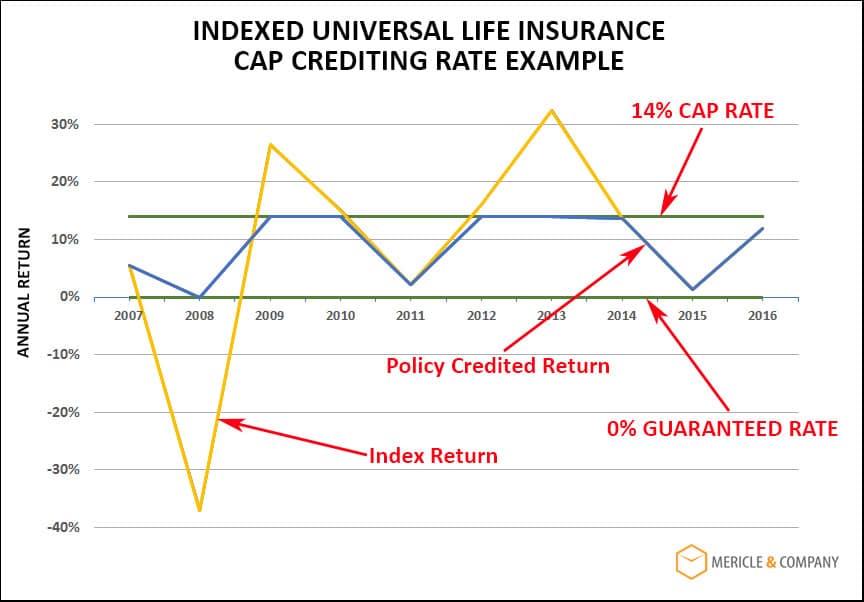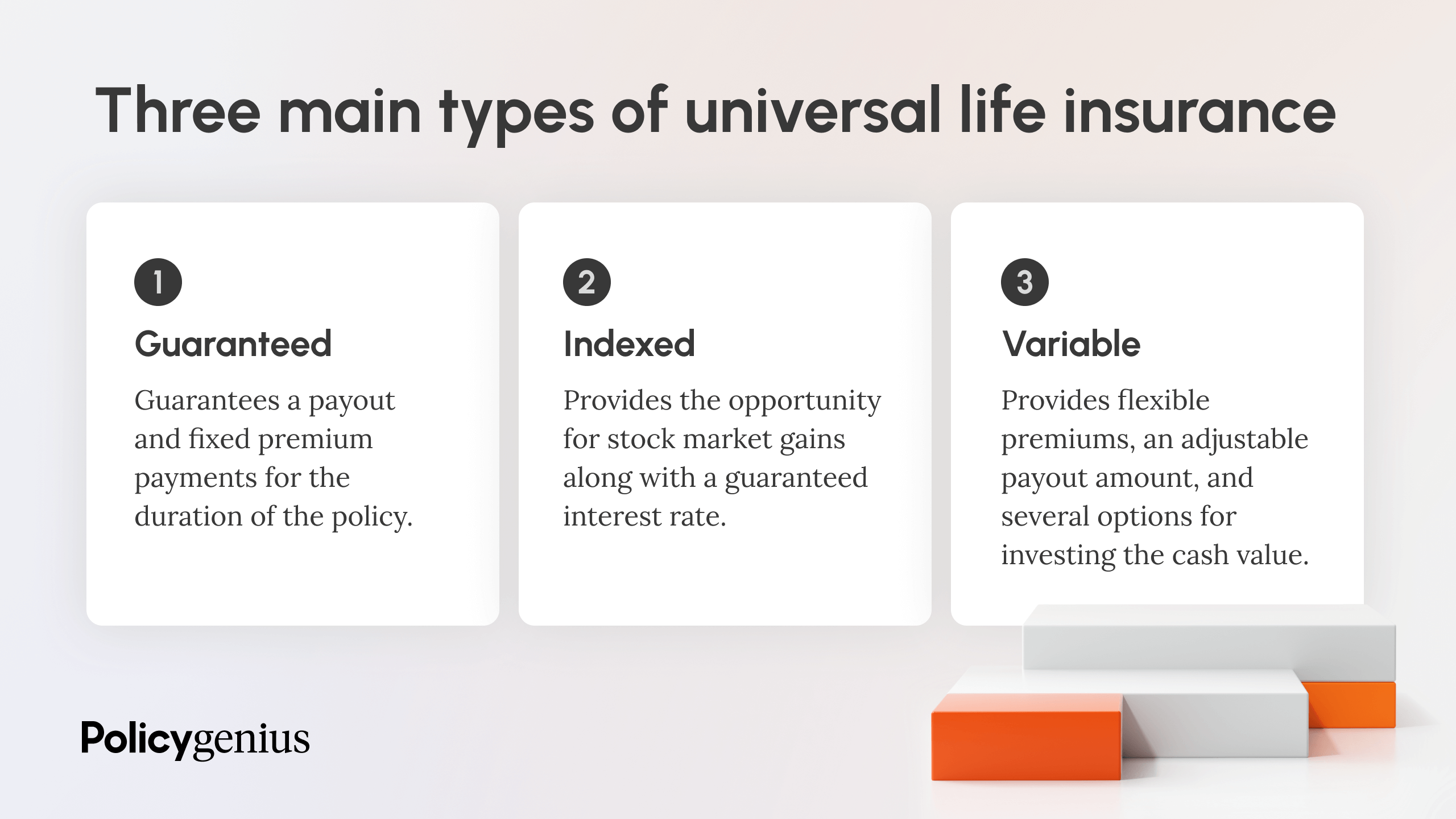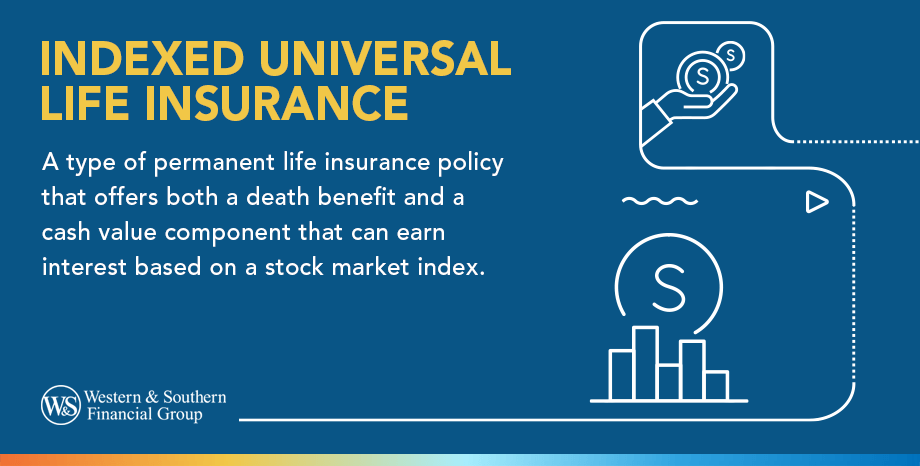All Categories
Featured
Table of Contents

[/image][=video]
[/video]
You can underpay or avoid costs, plus you may have the ability to adjust your fatality advantage. What makes IUL various is the way the cash value is spent. When you obtain an indexed universal life insurance policy, the insurer offers numerous options to select at the very least one index to use for all or component of the cash value account sector of your policy and your death benefit.
Adaptable costs, and a survivor benefit that may additionally be flexible. Money worth, in addition to possible development of that value with an equity index account. A choice to allocate part of the cash worth to a fixed interest alternative. Minimum rates of interest assurances ("floorings"), yet there may additionally be a cap on gains, commonly around 8%-12%. Collected cash money worth can be used to lower or possibly cover costs without subtracting from your fatality benefit.
Understanding Indexed Universal Life Insurance: Pros And ...
Insurance holders can determine the percentage alloted to the fixed and indexed accounts. The value of the chosen index is taped at the start of the month and compared to the value at the end of the month. If the index raises during the month, passion is added to the cash money worth.
The 6% is multiplied by the cash value. The resulting passion is contributed to the cash money value. Some plans compute the index gets as the amount of the changes through, while various other plans take approximately the day-to-day gains for a month. No rate of interest is credited to the cash account if the index goes down rather than up.
Equity Indexed Universal Life Insurance Policy
The rate is set by the insurance provider and can be anywhere from 25% to greater than 100%. (The insurance firm can also change the get involved rate over the lifetime of the plan.) If the gain is 6%, the involvement price is 50%, and the existing money value total is $10,000, $300 is added to the money value (6% x 50% x $10,000 = $300).
There are a number of pros and disadvantages to think about prior to purchasing an IUL policy.: Just like standard global life insurance coverage, the policyholder can raise their premiums or reduced them in times of hardship.: Quantities attributed to the cash worth grow tax-deferred. The cash money value can pay the insurance policy premiums, enabling the insurance holder to lower or stop making out-of-pocket premium repayments.
Several IUL policies have a later maturity day than various other kinds of universal life policies, with some ending when the insured reaches age 121 or even more. If the insured is still alive during that time, policies pay out the fatality benefit (however not generally the cash value) and the proceeds may be taxed.
Best Iul Companies 2021
: Smaller plan stated value do not supply much benefit over normal UL insurance policies.: If the index goes down, no rate of interest is credited to the cash value. (Some plans provide a reduced guaranteed price over a longer period.) Various other financial investment lorries use market indexes as a standard for efficiency.

With IUL, the goal is to make money from upward movements in the index.: Because the insurance provider only gets choices in an index, you're not straight spent in supplies, so you don't benefit when business pay rewards to shareholders.: Insurers fee fees for managing your money, which can drain pipes cash value.
For the majority of people, no, IUL isn't far better than a 401(k) in regards to saving for retirement. Many IULs are best for high-net-worth people looking for means to decrease their taxable earnings or those that have maxed out their various other retired life options. For everyone else, a 401(k) is a far better financial investment lorry since it doesn't carry the high fees and costs of an IUL, plus there is no cap on the quantity you might make (unlike with an IUL policy).
While you may not shed any type of money in the account if the index goes down, you will not gain rate of interest. If the market transforms bullish, the profits on your IUL will certainly not be as high as a regular financial investment account. The high expense of costs and charges makes IULs expensive and significantly less cost effective than term life.
Indexed global life (IUL) insurance uses cash money worth plus a fatality advantage. The money in the cash worth account can gain interest through tracking an equity index, and with some usually assigned to a fixed-rate account. Indexed global life plans cap how much money you can build up (frequently at less than 100%) and they are based on a perhaps unstable equity index.
Horace Iule

A 401(k) is a far better choice for that function since it does not lug the high costs and costs of an IUL policy, plus there is no cap on the quantity you might gain when invested. Most IUL plans are best for high-net-worth individuals seeking to lower their taxed revenue. Investopedia does not offer tax, investment, or financial services and guidance.
FOR FINANCIAL PROFESSIONALS We've created to give you with the finest online experience. Your present web browser may limit that experience. You might be utilizing an old web browser that's in need of support, or settings within your web browser that are not compatible with our site. Please conserve on your own some irritation, and upgrade your browser in order to see our site.
Your present web browser: Discovering ...
When your selected index gains value, so too does also policy's plan value. Your IUL money worth will likewise have a minimum passion price that it will certainly always make, regardless of market efficiency. An IUL policy operates the same method as a standard global life plan, with the exception of how its cash worth gains passion.
Indexed Universal Life Insurance Contract
If you're considering acquiring an indexed universal life plan, first speak to a financial expert that can describe the nuances and provide you an exact image of the real possibility of an IUL plan. Ensure you recognize exactly how the insurance firm will certainly determine your rates of interest, revenues cap, and costs that may be examined.

Part of your premiums covers the plan price, while the remainder enters into the cash money worth account, which can grow based on market efficiency. While IULs might appear eye-catching, they usually feature high costs and stringent terms and are completely unsuitable for numerous investors. They can create passion but additionally have the potential to lose cash.
Here are some elements that you need to think about when establishing whether a IUL policy was best for you:: IULs are complicated economic items. Make certain your broker completely explained exactly how they function, including the costs, investment dangers, and charge frameworks. There are more affordable options readily available if a survivor benefit is being sought by a financier.
Freedom Global Index Universal Life
These can considerably reduce your returns. If your Broker failed to provide an in-depth description of the prices for the policy this can be a red flag. Recognize abandonment costs if you determine to terminate the plan early.: The investment component of a IUL goes through market changes and have a cap on returns (significance that the insurance provider gets the advantage of outstanding market performance and the investor's gains are covered).
: Ensure you were told concerning and are able to pay enough premiums to maintain the plan active. Underfunding can bring about policy gaps and loss of coverage. If your Broker fails to explain that costs repayments are necessary, this might be a warning. It is essential to completely study and understand the terms, fees, and possible threats of an IUL policy.
Traditional development financial investments can typically be paired with more affordable insurance policy choices if a survivor benefit is necessary to a financier. IULs are excluded from government regulation under the Dodd-Frank Act, implying they are not managed by the united state Stocks and Exchange Commission (SEC) like supplies and options. Insurance policy agents marketing IULs are just required to be licensed by the state, not to go through the exact same rigorous training as stockbrokers.
Latest Posts
Disadvantages Of Indexed Universal Life Insurance
Iul Life Insurance Pros And Cons
Indexed Universal Life Insurance Companies